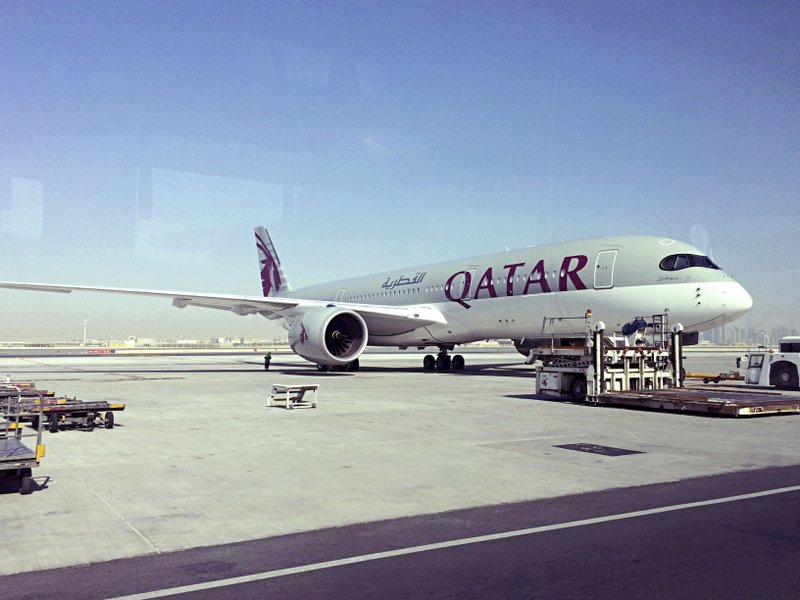DUBAI, United Arab Emirates -- Qatar, the Gulf state being isolated by its neighbors, said Monday that the reported involvement of the United Arab Emirates in hacking its government news site in May is "unfortunate" and a breach of agreements among the Gulf countries.
The Washington Post, quoting unnamed U.S. intelligence officials, reported Sunday that the UAE orchestrated the hacking and planted a false story that was used as a pretext for the crisis between Qatar and four Arab countries.
The report said senior members of the Emirati government discussed the hacking plan a day before a story appeared on the official Qatar News Agency quoting Qatar's emir, Sheikh Tamim Bin Hamad Al Thani, allegedly praising Iran and saying Qatar has a good relationship with Israel.
The UAE has denied involvement, calling the Post report "false" and insisting that the UAE "had no role whatsoever" in the alleged hacking.
The UAE, along with Saudi Arabia, Egypt and Bahrain, cut diplomatic ties and severed air, land and sea links with Qatar in early June over allegations that it supports extremist ideology -- an accusation that Qatar denied. The crisis has dragged on for more than a month with neither side showing signs of backing down.
The Saudi-led group has vowed to restore the links only after the world's biggest producer of liquefied natural gas complies with a list of 13 demands, including ending Turkey's military presence in Qatar, scaling back ties with Iran and severing relations with the Muslim Brotherhood. Qatar has rebuffed the demands and has denied the bloc's allegation that it funds terrorism.
Qatar maintained from the beginning that the quotes attributed to its ruler were the result of a hacking. It said in a statement Monday that the Post report "unequivocally proves that this hacking crime took place."
Sheikh Saif bin Ahmad Al Thani, the head of Qatar's government communications office, said, "It is especially unfortunate that this shameful act of cyberterrorism is being attributed to a fellow member of the Gulf Cooperation Council.
"This criminal act represents a clear violation and breach of international law and of the bilateral and collective agreements signed between the member states of the Gulf Cooperation Council, as well as collective agreements with the Arab League, the Organization of Islamic Cooperation, and the United Nations," he said.
The council is a six-member bloc made up of Bahrain, Kuwait, Oman, Qatar, Saudi Arabia and the UAE. Kuwait has been serving as a mediator in trying to resolve the current Gulf crisis.
Saif said a Qatari government investigation into the hacking is ongoing and that prosecutors will "take all necessary legal measures to bring to justice the perpetrators and instigators of this crime."
Turkey, meanwhile, is building up its military presence in Qatar, an adviser to President Recep Tayyip Erdogan said, in defiance of the Saudi-led bloc's demand that the Turkish military pull out of the country.
"Turkey's steady buildup continues there, protecting the border and the security of the Qatari government," adviser Ilnur Cevik said Monday by phone. Turkey has deployed dozens of commandos and some artillery units in Qatar, the Hurriyet newspaper reported.
The growing Turkish military footprint further entrenches positions on either side of the Saudi-Qatar divide that broke open last month. The conflict has resisted Kuwaiti mediation and U.S. Secretary of State Rex Tillerson's shuttle diplomacy, and on Monday, a senior UAE official said the Saudi alliance was ready for the process to take a "very long time."
Minister of State for Foreign Affairs Anwar Gargash said Monday that the Saudi-led alliance is prepared for a long standoff and that the pressure on Qatar seems to be working.
A "prolonged stalemate" will change Qatar's attitude, Gargash said at Chatham House in London.
Information for this article was contributed by staff members of The Associated Press and by Selcan Hacaoglu, Dana Khraiche, Glen Carey, Nour Al Ali, Kaye Wiggins and Ahmed Feteha of Bloomberg News.
A Section on 07/18/2017

